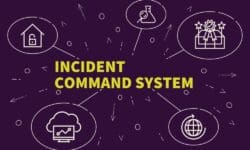6 Tips for Rookie Campus Crisis Management and Emergency Response Pros
A veteran campus crisis manager shares six actions new campus crisis managers should take before creating an emergency response strategy.

Photo: inspiring.team - stock.adobe.com
I recently attended a conference that included several breakout sessions on various topics, including campus safety. Several of the attendants were new to the field of higher education crisis management and emergency response. Listening to their experiences, it became clear that several had no past experience in the field, and more importantly, had no clear goals, objectives, or defined priorities in their new role.
Though every higher education institution has its unique culture and philosophy, I would like to present a set of philosophical foundations and several derived priorities crisis management and emergency response managers should focus on when beginning their new position. It is important to note that there is an endless variety of higher education institutions. Some — or all — of the recommendations listed below might be less relevant to your role.
In your new role, before defining your personal roadmap to a successful organizational crisis management and emergency response strategy, I believe the following universal foundations of the field must be clear:
- Become a subject matter expert: Know your regulatory field and become your organization’s subject matter expert in your profession. Higher education is a highly regulated field. As you begin your career in Crisis Management, you must understand the basic requirements, responsibilities, and accountabilities that several federal, state, and local key regulations instill. There are also industry standards and common best practices that are laid out by federal entities, professional organizations, professional associations, and more.
- Know your internal and external stakeholders: Every higher ed institute has a specific philosophy; there is a big difference between state and private colleges and universities, for-profit and not-for-profit institutions, small or big schools, online or on the ground, and more. Moreover, campuses tend to take the personality of the campus president even within the same university. Take the time to learn and understand the culture of the institution, the key departments and their general and related objectives, your predecessors’ work, and existing protocols and standards you are dealing with. Be engaged and develop trust. Staff, faculty, and students bring their prenotions to the table. Engage the campus on multiple levels and provide an array of services. The more familiar you are, the less intimidating you become.
- Build partnerships: Understand that you will only be able to do your best under the given circumstances. You will encounter numerous individuals who don’t know what they don’t know but are convinced that they know your job far better than you do. Understand that Crisis Management is a marathon and not a sprint; you will have success but also experience failure. You are in a unique profession where your best day is when nothing happens. Create or identify partnerships that will help you become successful.
- Be a leader: Be proactive, be pragmatic, be realistic, and be an ongoing learner. You can never do everything by yourself and your greatest asset is your people. Allow yourself time to think!
- Consider the budget: Security, safety, and crisis management are all expenses. You are therefore always operating on a limited budget. You need to separate emotion and sentiment from factual information and spend your limited funds on the more probable, high-impact risks. Since most of your challenges are not new, in most cases you will find preexisting solutions you can customize to your needs.
- The sacrificial lamb assumption: Inherently built in the position is the potential of becoming the organizational sacrificial lamb. There will always be those who say that if nothing happened you wasted money, and if something happened, you are clearly incompetent in your job. I would recommend you always follow your moral compass. Mine has always been, “Be loyal to your profession and to the people you are responsible for.” I can promise that the same people who ignore and belittle you during routine will be frantically running to you when the inevitable disaster strikes.
Veteran Campus Crisis Manager: Here Were My Priorities When I Joined the Industry
If you integrate these foundations into your department’s operations, you have a great starting point for prioritizing your visions as the new leader of higher education crisis management and emergency response. It is without doubt that your specific campus and university characteristics will heavily influence your priorities. For me, after two intensive weeks of reviewing all existing protocols, standards, and capabilities, the priorities that I defined when I started my new position in a thirty-campus, three states territory were the following:
- My top priority was, and is, the safety and security of the campus community — students, staff, faculty, visitors, and guests. Simply stated, everything else is secondary, and a day where no one gets hurt is a good day!
- I focus on ensuring that our existing protocols, standards, operating procedures, and capabilities are compliant, pragmatic, practical, and directly achieve their stated purpose. If your program is non-compliant or is impossible to effectively execute, you must prioritize changes.
- Compliance is crucial. As a professional, no one should know your field as well as you, and you can always improve compliance. At the onset, my priority was to become highly knowledgeable in the Clery Act, Title IX, ADA, FERPA, NIMS, FEMA standards of operation, state weapon laws, and state medical emergency response requirements.
- Due to inherent factors, student and employee well-being is an increasing challenge in our sector. As such, it was among my top focal points to address.
- I actively worked at getting stakeholder buy-in. From my perspective, as a professional in the service business, I was well-positioned to turn internal and external stakeholders into partners.
- Knowledge and communication are the keys to success. I used various means to increase my knowledge of crisis and emergency response at the campus community level — creating a crisis management webpage, using brochures, providing content to campus internal communications, information at the front desk, etc. At the same time, I ensured key crisis decision-makers can effectively communicate during a crisis with built-in communication redundancies and interchangeable skills.
- I believe that grand projects are complex, expensive, and time-consuming. For me, the focus was first on low-cost/high-return initiatives, considering it is more likely you will succeed after you gain the trust and respect of your counterparts.
From my narrow perspective, higher education crisis management and emergency response are in a current state of unclarity. The sector has undergone substantial transformations spurred by advancements in technology, the adoption of remote learning models, and the reverberations of the COVID-19 pandemic.
Despite a pressing demand for effective crisis management, many campuses find themselves entrusting this critical task to campus police or local law enforcement agencies. In some instances, crisis management strategies are encapsulated within unwieldy binders that lack operational feasibility. These documents often suffer from excessive length, internal inconsistencies, and a lack of alignment between intended purpose and their practical implementation. As a result, they fail to provide the necessary guidance and resources when faced with real-world emergencies.
For those stepping into senior management roles within this domain, the aforementioned observations can serve as foundational elements to guide your initial foray into your new career. They highlight the need for a holistic approach to higher ed crisis management and emergency response — one that integrates professional industry standards, a moral and philosophical compass, true leadership, and a clear alignment of purpose with actionable capabilities.
By acknowledging these building blocks, you can begin to construct a roadmap that fosters resilience, adaptability, and effective response strategies within the higher education landscape.
Oren Alter oversees crisis management, business continuity, safety, and security for 30 higher education campuses in the Southeast United States. He is a security expert with over 25 years of experience, including the Israeli Special Forces, the Israeli Security Agency, Corporate Security for an international multi-billion-dollar global company and higher education. Oren is also a certified instructor for the Department of Homeland Security Office of Bombing Prevention.
Note: The views expressed by guest bloggers and contributors are those of the authors and do not necessarily represent the views of, and should not be attributed to, Campus Safety.
If you appreciated this article and want to receive more valuable industry content like this, click here to sign up for our FREE digital newsletters!
 Leading in Turbulent Times: Effective Campus Public Safety Leadership for the 21st Century
Leading in Turbulent Times: Effective Campus Public Safety Leadership for the 21st Century
This new webcast will discuss how campus public safety leaders can effectively incorporate Clery Act, Title IX, customer service, “helicopter” parents, emergency notification, town-gown relationships, brand management, Greek Life, student recruitment, faculty, and more into their roles and develop the necessary skills to successfully lead their departments. Register today to attend this free webcast!







